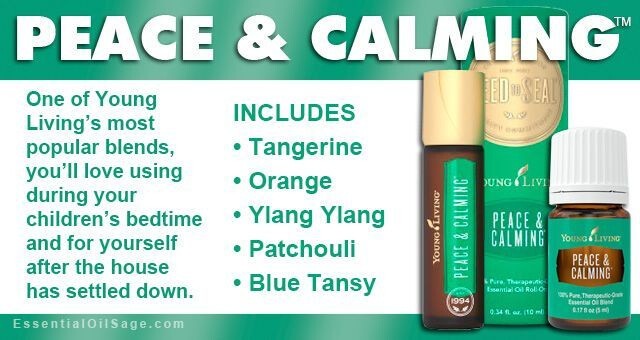Borderline Personality Disorder (BPD) is a mental health condition that is characterized by intense and unstable emotions, extreme mood swings, and impulsive behaviors. It affects nearly 1 in every 100 adults in the United States (including my partner) and can significantly impair one's quality of life. While traditional treatment methods such as therapy and medication can be effective, there are other complementary therapies such as aromatherapy that can also offer relief. In this blog post, I’ll be discussing the benefits of aromatherapy for patients with BPD.
Aromatherapy can help reduce anxiety and stress
One of the hallmark symptoms of BPD is intense anxiety and stress. Aromatherapy can be incredibly beneficial in reducing these symptoms by calming the mind and promoting relaxation. Essential oils such as lavender, chamomile, and ylang-ylang are known for their calming effects and can be diffused or used in topical applications like massage oils to promote relaxation.
Aromatherapy can improve mood stability
One of the biggest struggles for BPD patients is their mood instability. Aromatherapy can help with this by improving overall mood stability and creating a sense of balance. Essential oils like peppermint and lemon are known to have mood-boosting effects and can be diffused or used in baths or shower gels.
Aromatherapy can help reduce insomnia
Another common issue for BPD patients is insomnia or difficulty sleeping. Aromatherapy can be incredibly effective in promoting sleep by creating a calming environment. Essential oils like lavender or bergamot can be diffused or added to bathwater or massage oils to create a relaxing atmosphere that encourages healthy sleep patterns.
Aromatherapy can promote mindfulness
Another aspect of BPD that can be difficult is being present in the moment or practicing mindfulness. Aromatherapy can be used as a tool to help promote mindfulness by using scents to ground oneself in the present moment. Essential oils like frankincense or sandalwood can be diffused or used in meditation practices to help facilitate mindfulness.
Aromatherapy can enhance self-care practices
Finally, aromatherapy can be a great addition to self-care practices for those with BPD. Taking a few moments to diffuse an essential oil or run a bath with added essential oils can be a great way to prioritize self-care and relaxation. This can be especially helpful in times of crisis or high stress.
In conclusion, aromatherapy can be a powerful tool in managing some of the symptoms associated with BPD. By promoting relaxation, stability, and mindfulness, essential oils can help improve overall quality of life for those with BPD. As with any therapy, it's important to find what works best for you personally, but integrating aromatherapy into your self-care routine is certainly worth considering. It has been working well for my partner.
Hey there, mental health warriors! Have you ever found yourself sinking deeper into your depression or anxiety, and without even knowing it, you start pushing the people closest to you away? You're not alone. It's a common thing to do when we don't mean to - it's simply a manifestation of some of the symptoms of mental illness. In this blog post, we will explore what happens when you try to survive your mental health on your own, and what you can do instead. So, let’s dive into the art of pushing people away when you have a mental illness and don’t mean to.
- Why do we do it?
First of all, let’s explore the reasons why we push people away. When things get challenging and our mental health is taking a toll on our lives, it's common to feel like you're alone. We don't want to burden our loved ones with our problems, so we try and resolve things on our own. That's where the problem starts. Depression and anxiety feed on isolation. Without realizing it, we can shut ourselves off from the world without even realizing it and that’s when we start pushing people away.
- Recognizing the pattern
Every one of us has our own unique experience when it comes to mental illness, but we all experience some sort of patterns. Once we recognize the pattern of how we push people away when things start to spiral, we can start to mitigate the harm done by taking action. We can be honest with our loved ones about our experience, we can share our feelings, communicate our needs, and ask for help if necessary.
- Connect with others who understand
One of the best things about seeking support is that it allows us to connect with people who understand. Mental health support groups, online forums, or even social media can be a great place to find people who get it. You can gain valuable insights into how others push people away when they don’t mean to. It's helpful to be able to relate to people, especially when it comes to mental health, so finding a community can be so beneficial.
- Take Action
Now that we know why we do it, how to recognize the pattern, and how to connect with others, the next step is to take action. Here are a few tips to keep in mind:
- Reach out to a mental health professional for support
- Keep in touch with your loved ones and communicate openly about your mental health journey
- Create a plan of action for when you’re feeling low or when you’re going into ‘shut-down’ mode
- Remind yourself that self-care is non-negotiable when it comes to mental health
- Using essential oils to help relax and maintain your stress level as well as using fidgets to move around in your hand. Ask me how and I can direct you to oils that help me.
- Final Thoughts
Take it easy on yourself if you find yourself pushing people away. It's tough to deal with mental health, and it's even more challenging to communicate that experience effectively. But it's worth remembering that you don't have to go through it alone. If you can give yourself space to feel and connect with others who understand, you take the first step towards healing. So, keep going and don't forget to be kind to yourself. In this blog post, we discussed why we push people away when we have mental illness, how to recognize the pattern, and the importance of connecting with others. Remember, we all deserve support and love, and it’s okay to ask for help when we need it. We hope this post helped you understand how you can navigate the art of pushing people away when you have a mental illness and don’t mean to. You’ve got this!
I have been living with my partner who has Borderline Personality Disorder for the last six years. It has been a challenging experience for me but also an enlightening one. I want to share my story and provide some insights and tips for people who live with someone with mental illness.
Educate yourself - the first thing I did when my sister was diagnosed was to read and learn about the disorder. This helped me understand her symptoms and how to live with them. There are fantastic resources online, books, and support groups that can help.
Communication is key - open and honest communication is vital when living with someone with mental illness. You need to talk about their symptoms and how to handle them in case of a crisis. I have found that talking to my sister when she is calm and in a good mood has been helpful in avoiding emotional breakdowns.
Be supportive - people with mental illness require support both physically and emotionally. Medication, therapy, and regular checkups are necessary for people with bipolar disorder. Accompanying your loved one to these appointments and being there during their low moments can make a difference.
Take care of yourself - living with someone with mental illness can take a toll on your mental and emotional health. It is essential to take care of yourself and seek support if needed. Meeting with friends, going to therapy, and practicing self-care can prevent burnout.
Celebrate little victories - mental illness can be overwhelming and sometimes, it can be easy to focus only on the negative aspects. Celebrating small victories like going to therapy regularly, taking medication as prescribed, and being able to manage their symptoms can go a long way in improving the person's self-esteem and mental health.
Living with someone with mental illness can be a trying and rewarding experience. It is essential to educate yourself, communicate openly, be supportive, take care of yourself, and celebrate small victories. The most important thing you can do is to be there for your loved one, to support them, and to remind them that they are not alone in their journey.
Communication is key - open and honest communication is vital when living with someone with mental illness. You need to talk about their symptoms and how to handle them in case of a crisis. I have found that talking to my sister when she is calm and in a good mood has been helpful in avoiding emotional breakdowns.
Be supportive - people with mental illness require support both physically and emotionally. Medication, therapy, and regular checkups are necessary for people with bipolar disorder. Accompanying your loved one to these appointments and being there during their low moments can make a difference.
Take care of yourself - living with someone with mental illness can take a toll on your mental and emotional health. It is essential to take care of yourself and seek support if needed. Meeting with friends, going to therapy, and practicing self-care can prevent burnout.
Celebrate little victories - mental illness can be overwhelming and sometimes, it can be easy to focus only on the negative aspects. Celebrating small victories like going to therapy regularly, taking medication as prescribed, and being able to manage their symptoms can go a long way in improving the person's self-esteem and mental health.
Living with someone with mental illness can be a trying and rewarding experience. It is essential to educate yourself, communicate openly, be supportive, take care of yourself, and celebrate small victories. The most important thing you can do is to be there for your loved one, to support them, and to remind them that they are not alone in their journey.





